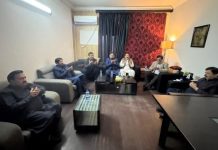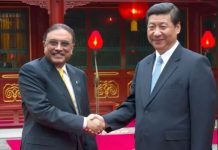DNA
The International Federation of Journalists (IFJ) on Friday said that journalism in Pakistan is “under threat” as the world commemorates Press Freedom Day.
World Press Freedom Day — observed annually around the world on May 3 — is an important occasion to raise awareness of the importance of journalism and freedom of expression.
This year’s theme, “A Press for the Planet: Journalism in the face of the environmental crisis”, is dedicated to emphasise the important role of journalism and freedom of expression in the context of the current global environmental crisis.
On the day, the IFJ has also launched its 22nd annual South Asia Press Freedom Report, according to which, journalists have become “punching bags” in the fight between former prime minister Imran Khan and the establishment.
The report said that 60 journalists were issued legal notices while dozens were arrested and remain in custody.
It said that about eight journalists were charged with sedition, terrorism and incitement to violence, adding that most of the cases were against journalists who were supporters of Imran Khan and his party.
As per the report, access to information and freedom of expression were restricted while the government failed to create a safety commission to protect journalists.
“The economic situation of the media in Pakistan was also bad. People were fired from the media and their wages were cut,” added the IFJ report.
AEMEND vows to fight adverse situation
The Association of Electronic Media Editors and News Directors (AEMEND) has expressed its determination to continue the constitutional and legal struggle for freedom of expression and to fight against the adverse situation.
In a statement, AEMEND stated that journalists and media institutions in Pakistan are going through a difficult situation.
“There have been numerous restrictions and channels, including the suspension of television programs by state and non-state actors, undue pressure and illegal demands for the dismissal of journalists, which has been increasing day by day,” it added.
AEMEND said that Pakistan is included in the list of “most dangerous” countries for journalists “where many journalists have been martyred and disabled for life while performing their duties”.
President seeks safety, security of journalists
President Asif Ali Zardari, in a statement, emphasised the need to initiate measures for the safety and security of journalists to enable them to freely report on important issues, without fear.
“The Constitution of Pakistan guarantees the freedom of the press, however, it is also the responsibility of the media to abide by journalistic ethics and report responsibly and accurately, keeping in view the national interest,” the president said.
President Zardari also stressed the need to provide an enabling environment free of intimidation or harassment to journalists so that they could freely express their opinions.
The president said that this year’s theme underscored the importance of a free press in creating awareness and educating the people about climate change and its impacts on human life and the environment.
Govt to make all-out efforts to uplift media: PM
Prime Minister Shehbaz Sharif assured that the incumbent government would make all-out efforts to uplift the media industry and resolve the issues confronting it.
The prime minister, in his message on World Press Freedom Day annually, also reiterated the resolve for government’s maximum cooperation to protect the rights of media industry as well as the media workers.
Paying tribute to the journalists, media workers, writers and cameramen, the premier said the male and female journalists who sacrificed their lives during coverage in Gaza were the heroes of humanity.
The PM also urged the collective role of media and other stakeholders to create a conducive atmosphere to ensure smooth media functioning. He said the government firmly believed that freedom of media and expression provided guarantee for democratic durability.

















